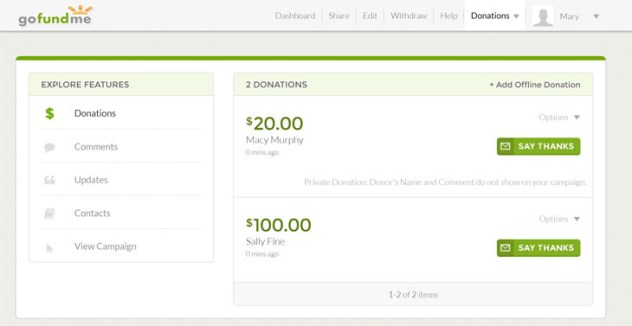By Greg Collier
There’s light at the end of the tunnel now. Job markets are starting to open up and slowly but surely several new positions are becoming available around the country. However, it’s not to the point yet where you can take the application process lightly. You need to compete for these positions and in order to achieve that you need an edge against your competition. We’ve found some tips that we think will give you better chances of finding that new position.
1. Craft a professional looking resume.
A resume is your best way of getting your foot in the door with a new employer. However, not everyone knows how to write a resume. No matter what position you may be applying for, a well-crafted resume speaks volumes to a potential employer.
Both Google Docs and Microsoft Word online have great templates that can help you craft your resume and their services are free. If you’d prefer and can afford it, there are services where people will craft a professional resume for you. Feel free to get creative with your resume’s appearance but not so creative that the resume is difficult to read or looks too unprofessional.
In most cases, you’ll be able to send your resume electronically. However, you should have several copies of your resume printed out. Too many times people have gone to interviews where they’ve submitted their resume electronically only to have the interviewer ask for a hard copy. While most of don’t have printers at home anymore, you usually can get files printed at your local library relatively inexpensively. You can also print out your resume at retail delivery outlets like the UPS Store.
Try to keep your resume down to one page. Multiple page resumes have the potential to get lost in the shuffle. While you may have a lengthy employment history, try to limit it to the past 5-10 years. If you’ve only held one job in that time then feel free to go back further in time.
Whatever you do, don’t try any of the resume tricks that look like you’re trying to fool the employer. The most infamous one of these tricks is using keywords from the job ad on your resume in white font. When employers scan resumes they will find those supposedly invisible keywords and will discard your resume.
2. Use social media to your advantage
If there’s a particular company you’re eager to work for, follow them on social media. By doing so, you may gain an insight into their hiring cycles and practices. We’d recommend following them on Facebook, Twitter, Instagram, or LinkedIn. Make LinkedIn a priority and then follow the company on whichever other platform the company is most active on. Don’t be afraid to interact with the company’s social media either. Leave a comment on their posts that you find interesting. This could go a long way in establishing yourself with the company. Just always remember to be professional when dealing with the company even on social media.
You may also want to consider cleaning up your own social media. It’s an unfortunate fact that many employers will go through an applicant’s social media to make sure they’re hiring the right person. Employers don’t want to find a bunch of inappropriate posts on your social media profiles. For example, if you have a series of pictures on your social media where you have a drink in your hand in every picture, you may want to make those posts private. You may have had a great time on Spring Break in Cancun doing tequila shots for breakfast, but your prospective employer doesn’t need to know this. This goes double for that time you and your friends smoked the fattest joint you’ve ever seen. While cannabis may be legal in many states now, most employers still look down on that kind of recreational activity. Along those lines, try to limit which of your friends can tag you in posts as they may post an unflattering picture of you that could show up on your profile.
Also consider making any political or off-color posts private as well.
And while this next tip isn’t really related to social media, we’d thought we’d throw it in here. Always use a professional email address when applying for a job. While you may have had the same email address since grade school, employers don’t want to see an email address like StonerLord420@weedmail.com or babeegrrl@partymail.com. Stick with using an email address that just encompasses your name like JohnSmith@example.com, or even something like jsmith785@example.com.
3. Reach out to friends and family
If you’re currently looking for work, don’t be afraid to let your friends and family know. They might not know someone directly who’s looking for new employees, but someone they know might. Employers love getting referrals for new employees from existing employees.
If you went to college, think about reaching out your college buddies or your former fraternity brothers or sorority sisters. Except for that one person who’s still in college on the ten-year plan. They’re going to need more help than you. Most universities also have career and alumni events you can attend to help get your name out.
Speaking of universities, if you have a specialized degree in a certain field, but there’s not a lot of opportunities in that field right now, give teaching a try. You don’t have to do it forever, and it looks good on a resume.
4. Attend job fairs
This is where printing out multiple copies of your resume comes in handy. Job fairs are a great place where you can introduce yourself to multiple employers at one gathering. You can usually find ads for job fairs on job boards and in your local newspaper or their website. You can even try talking to employers who may be out of your field. Not only that, but you may be introduced to a new experience that you excel at. Just make sure you dress professionally because the adage about making a first impression is true even if it’s for a more casual position. And lastly, don’t hesitate to ask any questions about the employer or the position. That will not only show that you’re motivated but that you’re interested in the company as well.
5. Call or email an employer directly
Most employers these days will want you to fill out an application or submit a resume online. However, it can’t hurt to call them directly asking about potential openings, even if they don’t have any openings that fit your experience. You might end up making a contact within their HR department. Then that way you could be at the forefront when a suitable position opens.
You may also want to research if the company has a public email where you can reach their hiring department directly. Again, even if they don’t have any positions open currently, they could be contacting you when they do.
6. Apply at temp or staffing agencies
Temp agencies seem to get a bad rap when it comes to finding a new job. In many cases, they are a great way to not only build up your reputation with the company you’ve been contracted to, but you may become one of the temp agency’s star temps to contract out.
A lot of companies love to hire someone after having them a few weeks or months as a temp. I was hired on permanently at more than one job after working for the company as a temp. However, even if you’re not hired on permanently, the temp position could still provide invaluable experience that you can use in the future.
7. Don’t forget the job boards
Some of the most common ways are the best and this includes searching for a job on the various online job boards. Companies use these boards because they work. You can use these boards to filter out a job by location, salary, and field among other qualifications. You can also submit your resume for any employer to review. Most will even let you set up notifications for when a position in your field becomes available.
Also, please keep in mind that Geebo.com has an extensive employment section as well.












Leave a Reply